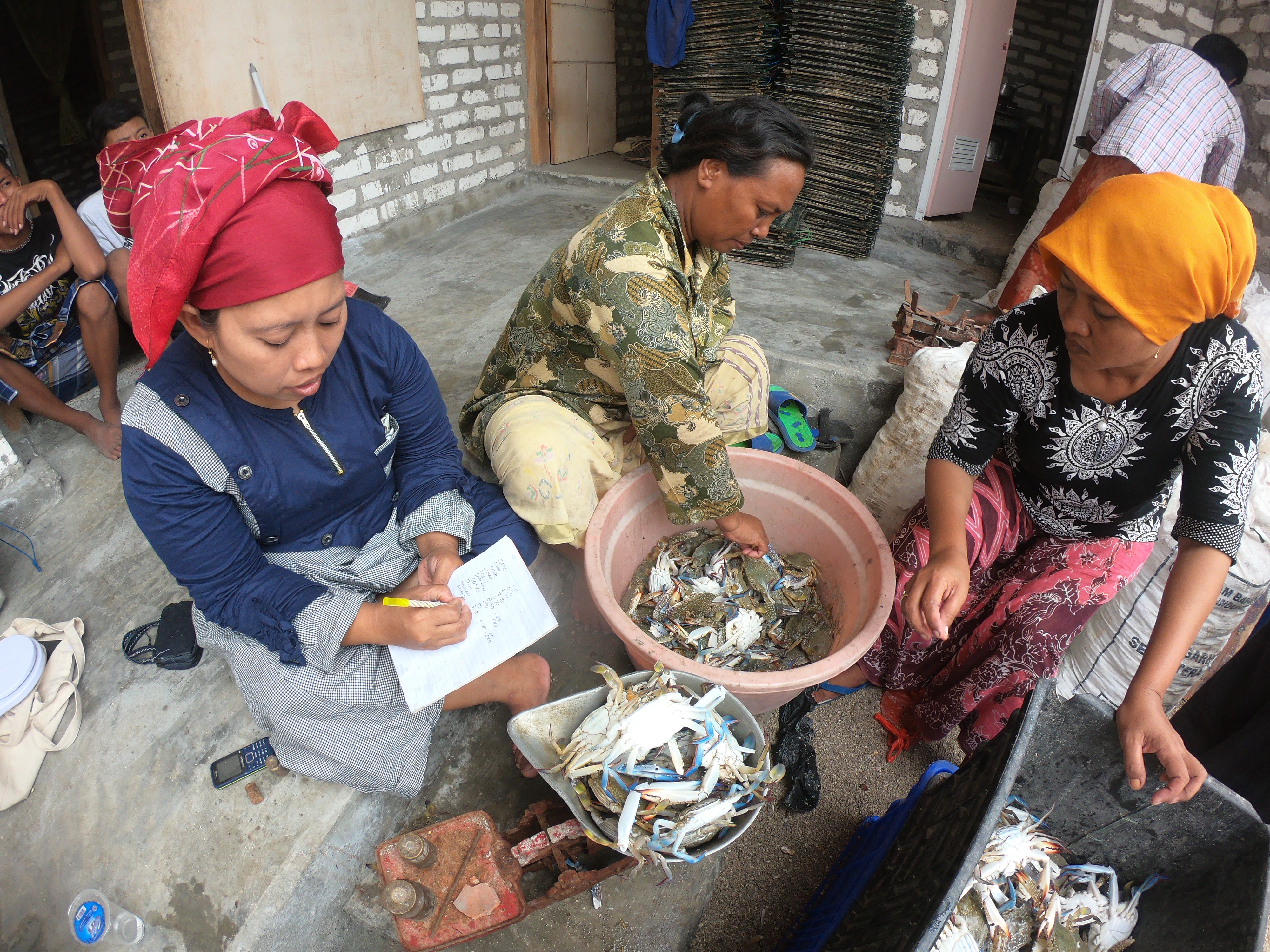(The photo was taken before the COVID-19 pandemic)
There's no denying that the fishing industry is dominated by men. Fisherwomen, on the other hand, are just as hard-working as their male counterparts in small-scale fisheries. This includes everything from fishing and marketing to auctioning and post-harvest activities like processing and packaging. However, their efforts go unrecognized by their own people.
To address this issue and demand equal rights and social protection for women fisher in Indonesia, Masnuah, the general secretary of the Persaudaraan Pempuan Nelayan Indonesia (Indonesia's Women Fishers Solidarity) took action. Women fishers in Tambakpolo, Demak, have been fighting against the patriarchal paradigm that prevents them from achieving their full potential since 2013.
"Even though the law has been established, the policy's implementation has a negative effect on small-scale fishers, particularly fisherwomen. They are still unable to obtain fisher's cards and insurance, as well as assistance such as boats and so on. Women, like men, go fishing in the sea just like men. They're not just there to assist, but they also bear some of the responsibility for the trip's success." Masnuah said this.
Indonesian Law No. 7/2016 on the Protection and Empowerment of Fisherfolks, Fish Raisers, and Salt Farmers defines a small fisher as a person who catches fish to meet his or her daily needs without the use of a fishing vessel or a fishing vessel of less than 10 (ten) gross tonnage (GT). Fishers are defined in the law as anyone who makes a living by catching fish. Neither sexes are exempt from this rule. Protection, empowerment, financial support and oversight of fisher as well as public participation are all included in the scope of fisher protection and empowerment.
They go out to sea to catch blue swimming crabs in Demak on a regular basis. In some cases, these may be paid or unpaid for by the family. As with men fishers, they need a partner to control the ship and set the net while on board. As a result, protecting and relocating fisherwomen is critical to their long-term survival and resilience," said Masnuah.
It was Masnuah's job to advocate for the rights of fisherwomen in 2016 and 2017. Fisherwomen were not allowed to officially register as "fishers" and thus were unable to obtain a fisher identification card, which would have allowed them to benefit from the incentives provided by the Indonesian Ministry of Marine Affairs and Fisheries (MMAF) and other benefits available only to registered (male) fishers. Unfortunately, the Regional Representative Council was unimpressed with her efforts.
Assaulting women, calling fishers "low-level workers," and using sexist language were some of the inappropriate words used during the meeting. Masnuah continued, "The incident has been reported by the media until now."
The lack of recognition of women's role in the fisheries is also a result of regional and national policy differences. Development policies in coastal and island areas that take resources, exploit people, and deprive them of their homes disproportionately target women fishers, making them an especially vulnerable demographic. In this case, patriarchal social norms have placed additional barriers in the way of women's access to natural resources and the exercise of their right to food equality.
United Nations member states from around the world have agreed to meet 17 Sustainable Development Goals (SDG) by 2030. The objectives include gender equality, decent work for everyone, and life under the sea, with particular attention paid to the provision of access to marine resources and markets for small-scale artisanal fishers. Fisheries stakeholders in Indonesia must strive to ensure gender equality and protection of women in the fisheries sector, to take proactive measures to ensure the protection and recognition of women's role in fishery, and to protect their living space, in order to live up to their commitment.
-
Written by Vinni Nurizky, Design and Communication, & Jensi Sartin, National Project Coordination, UNDP Indonesia (Global Sustainable Supply Chain for Marine Commodities)
Edited by Tomi Soetjipto, Communication Specialist, UNDP Indonesia

 Locations
Locations